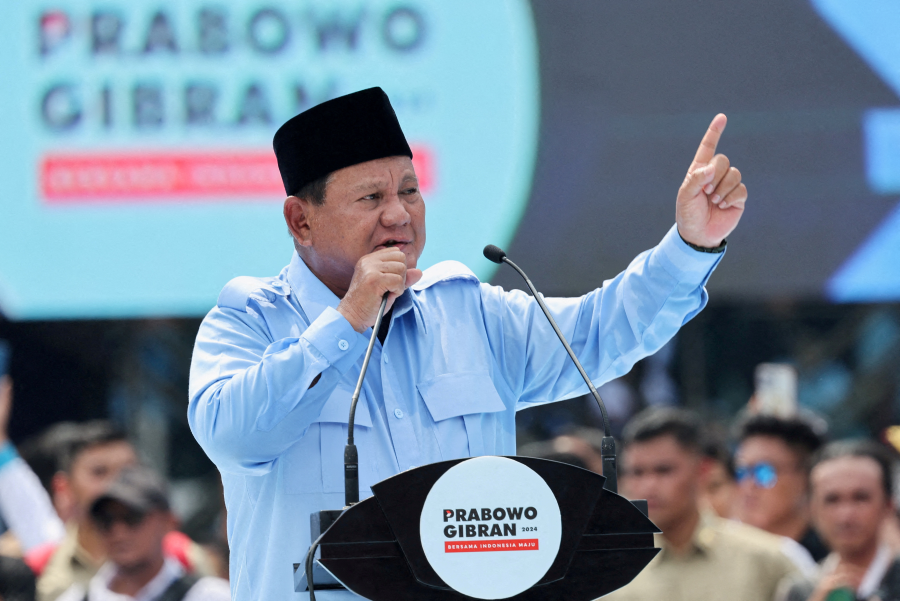
Law firms interviewed: HHP (Baker McKenzie), Hogan Lovells DNFP
On Valentine’s Day, Indonesians went to the polls during the world’s largest single-day election, and decided that their former defence chief should be their next president.
Although the official results have not been finalised yet, the usually reliant quick polls have given a strong mandate to Prabowo Subianto, scrapping the need for a run-off.
Prabowo is a retired army general who decided to run for the office of president with the backing of Joko Widodo (Jokowi), the highly popular incumbent; indeed, Jokowi’s son, Gibran Rakabuming Raka, is Prabowo’s vice-presidential candidate.
On the campaign trail, Prabowo had vowed to extend the policies and programmes of the Jokowi administration, and to grow Indonesia’s economy aggressively, and lawyers, too, are expecting a continuity in governance that will provide them the blueprint they need to assist their clients better.
“We expect that businesses will continue to grow their operations and investments in the strategic sectors that the (Widodo) government has been focusing on, namely, renewables, energy transition, sustainability, EV supply chain, telecommunications and technology, logistics and transportation,” says Mita Guritno, managing partner of HHP Law Firm, member firm of Baker McKenzie in Indonesia.
She underlines healthcare, hospital services and pharmaceuticals as areas that corporates and their law firms should pay close attention to because “improving the quality of healthcare services and reducing dependency on imported drugs” is high on the government’s agenda, she says.
Lawyers at Hogan Lovells DNFP concur. “Indonesia also permits unrestricted foreign ownership in hospitals and has relaxed exemptions for foreign personnel within the healthcare sector. We are excited about the prospect of legal and economic development in this area, especially as we represent several foreign hospital clients,” note the Hogan Lovells Jakarta team led by managing partner Chalid Heyder and corporate partner Mochamad Kasmali.
Guritno also believes infrastructure development, particularly relating to roads, ports and airports, will be another bright spot, driven by the continued development of the new capital city, Nusantara. “Agriculture appears to be another sector of potential growth, based on Indonesia’s current development plan,” adds Guritno.
All eyes are also on energy transition and how Indonesia is going to spearhead the green revolution powered by its rich reserves of much-coveted critical minerals, including nickel and cobalt.
“For the energy transition, Indonesia has issued several regulations on carbon capture and storage (CCS) and carbon capture utilisation and storage (CCUS), the latest one being Presidential Regulation No. 14 of 2024. We would expect the issuance of implementing regulations to support the development of CCS in Indonesia and the plan to create Indonesia as one of the CCS hubs in Asia Pacific,” note Heyder and Kasmali.
Hogan Lovells also expects the new government to expedite the timeline for achieving the goal of net zero carbon emissions “with more robust funding expected from third-party state and non-state actors.”
“We expect that the government will issue new regulations to achieve the expected targets in energy transition and infrastructure, which would provide certainty to investors, including feed-in tariffs. We also note the government’s plan to replace coal-fired power plant with renewable sourced energy,” they add.
Another key legacy of Jokowi is transforming Indonesia – a sprawling archipelago prone to natural disasters including earthquakes and volcanic eruptions - into a digital economy with high connectivity and robust digital infrastructure. Lawyers expect the Prabowo administration will continue to build on the digital roadmap crafted by Jokowi to stimulate Indonesia’s economic growth.
“Indonesia is currently strengthening its information and technological regulation with the recently amended EIT Law, the enactment of the Personal Data Protection Law, and the improvement of regulations on Electronic System Providers, including video game industries. This is to harmonise with Indonesia’s purpose of going industry 4.0 (digital transformation) and attracting investments in the digital market,” explain Heyder and Kasmali.
Looking ahead, Hogan Lovells anticipates the issuance of implementing regulations that were previously put on hold due to the elections. These include implementing regulations on personal data protection, renewable energy, and the health industry.
In the meantime, lawyers are keeping an eye on future developments in sectors, including improvements in digitisation, modernisation of health amenities, and the food industry.
“We expect the current trend of economic growth to continue under the new administration. As Indonesia’s economy grows, this provides an important opportunity for Indonesia to play a bigger role within the Southeast Asia legal market,” Heyder and Kasmali note.
“We do not anticipate any significant challenges in the legal industry during the transition period. However, we will continue to monitor the evolving legal landscape in case of the unexpected,” they add.


